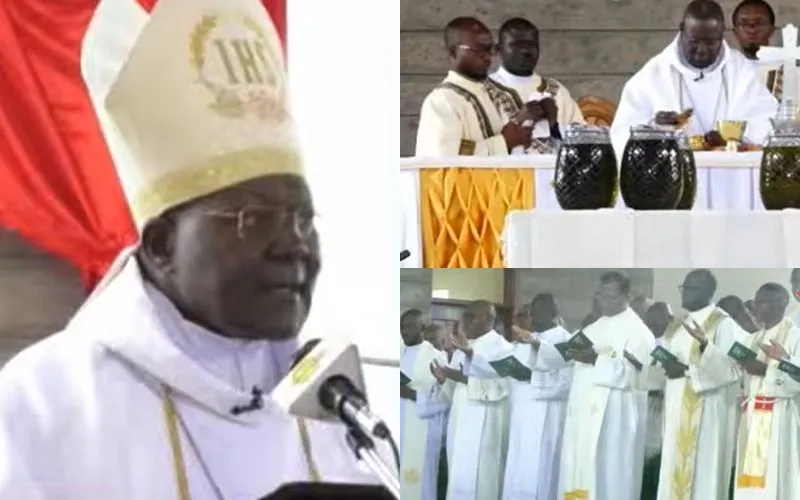There is need for the tent image to be taken cautiously, Fr. Mensah said, cautioning that the image “could open old wounds for some people”.
“Perhaps it brings to mind the number of displacements that have occurred on the African continent as a result of war,” he said, and explained, “We know when our brothers and sisters who braved the Mediterranean to cross into Europe, they're kept in tents.”
The Catholic Priest continued, “In Africa the human agent is far more important than any material reality. So, when I look at a tent as an African, I'm not looking at the architecture of the tent; I'm looking at who dwells in the tent. That is more important for me as an African, not the architecture.”
Also addressing participants in the February 25 virtual event, the Secretary General of the Association of Member Episcopal Conferences in Eastern Africa (AMECEA) provided a brief summary of DCS.
“We are all aware that Pope Francis has called us to embark on this special journey called Synod on Synodality, focusing on three pillars, communion, participation and mission. This synod is a unique one and it has a special methodology. It's a call to journey together,” Fr. Anthony Makunde said.
(Story continues below)
DCS, Fr. Makunde said, “is the result of a group reflection on the syntheses submitted to the Vatican by 112 Bishops’ Conferences and 15 Oriental Catholic Churches of the questions raised during the local and national listening sessions held in 2022, plus reflections from 17 out of 23 Dicasteries of the Roman Curia, from the men’s and women’s international unions of Superiors General, and from Catholic lay associations and movements.”
“One thing to be clear about is that the document does not endorse the position of any particular area, whether Africa, Latin America, in America itself or Europe or Asia,” the Secretary General of the Nairobi-based Secretariat further said.
He described DCS as “a general document that brought together the fruits from all the continents”, and that it carries the “hopes and concerns of the people of God across the globe.”
“The document for the Continental Stage is not conclusive,” Fr. Makunde cautioned, and explained, “What we experience when we were requesting people to give us a reaction will help us in the continental discussion.”
In Africa, the Tanzanian-born Catholic Priest said, members of the Symposium of Episcopal Conferences of Africa & Madagascar (SECAM) are expected in Addis Ababa, Ethiopia, “for a Continental Synod Assembly from the 1st to 6th March 2023.”
“We are still in the process because people will say now, we have the document we just wait for the Pope to endorse it and we are done. No, it's not a document of the Church's magisterium; it is a working document,” Fr. Makunde said February 25.
Jude Atemanke is a Cameroonian journalist with a passion for Catholic Church communication. He holds a Bachelor’s Degree in Journalism and Mass Communication from the University of Buea in Cameroon. Currently, Jude serves as a journalist for ACI Africa.








